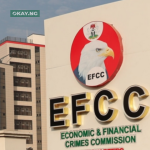Fresh facts are now emerging on why the federal government last week withdrew the charges against Mr. Godsday Orubebe, a former minister in charge of the Ministry of Niger Delta under the Goodluck Jonathan administration who was arraigned before the Code of Conduct Tribunal (CCT) on allegations of false declaration of assets.
Sources confirmed that the decision to withdraw the charges was based on a legal advice from the Federal Ministry of Justice in which it was strongly canvassed that the case against Orubebe as presently constructed and filed was fundamentally defective.
The legal advice from the Ministry of Justice was to the effect that since Orubebe was not invited to make a statement on the allegations against him, the process of arraignment was fundamentally flawed.
The legal advice referred to Section 379 sub-section (1) (a) of the Administration of Criminal Justice Act 2015 which listed the ingredients that must be forwarded as part the process to be filed by the prosecution before the commencement of the case as including in (iv) “copies of statements of the defendant.”
Other documents mentioned by the section of the Act included the proof of evidence, consisting of: the list of witnesses, the list of exhibits to be tendered, summary of statements of the witnesses, copies of statement of the defendant, any other document, report, or material that the prosecution intends to use in support of its case at the trial, particulars of bail or any recognisance, bond or cash deposit, if defendant is on bail, particulars of place of custody, where the defendant is in custody, particulars of any plea bargain arranged with the defendant; particulars of any previous interlocutory proceedings, including remand proceedings, in respect of the charge, and any other relevant document as may be directed by the court.
Also to be submitted is a copy of the form for information on legal representation as provided under section 376 (9) of the Act.
Another source confirmed that the ministry further argued that without the statement of the defendant, the prosecution may have provided a strong case for the defence legal team to argue that the case be dismissed on technical ground.
“That case cannot survive because the tribunal judges are not there to help the prosecution to prepare a water tight case. If the prosecution leaves a loose end for the defence team to explore, the judge will have no option than to throw away the case. This has been the bane of the anti-corruption war in this country. That is why the investigators and the prosecution must always do their job diligently if we are going to make a headway in punishing corrupt practices,” the source added.
It was however learnt that the federal government might have withdrawn the case to enable its investigating and legal teams do the proper thing.
It is believed that the former minister might be invited and confronted with the allegations against him so that he can make a statement and “after the due process is followed, he might be compelled to re-appear at the tribunal.”
The issue of failure to invite a defendant to make statements before commencement of prosecution is now an issue of contention in the Saraki case before CCT as the lead counsel to the Senate President, Mr. Kanu Agabi (SAN) at the last hearing of the suit on March 18, contended that the failure of the Code of Conduct Bureau to invite his client to make statement has resulted in denial of fair hearing and therefore vitiate the validity of the suit against him.
Sources said the prosecution in the Saraki case has realised the fundamental flaw in the case as it would have also preferred to withdraw the matter against the Senate President and file it again after getting him to make a statement.
“However, at this stage when the tribunal is at the stage of ruling on a matter that may determine the future of the case, the prosecution in the Saraki case is in a dilemma. They have seen that they may lose this case,” said a source in the ministry.










